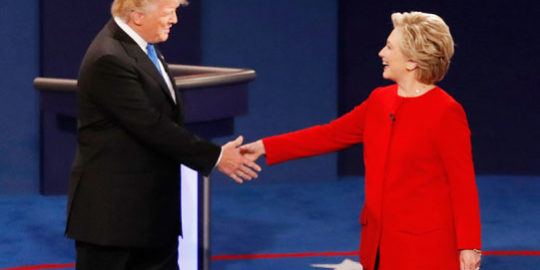Incredibly, in 1960, during the first televised presidential debate between Senator John Kennedy and Vice President Richard Nixon, agriculture and farm policy made the cut for discussion. And, it was not just a passing reference, it was the third question asked by one of the journalists on the panel.

Charles Warren of Mutual News even prefaced his question on the state of current farm policy by saying, “It’s a fact, I think, that presidential candidates traditionally make promises to farmers” and followed up with “why this constant courting of farmers?”
The economic backdrop was this: Over the last decade, roughly 3 million people had been driven off the farm with net farm income dropping by 35 percent. The farm economy was hurting and there was angst in rural America.
Sen. Kennedy had already included a reference to the present plight of farmers in his opening remarks, but responded by saying,
Vice President Nixon, in his response, also articulated the importance of supporting farmers. And, just days ahead of the debate, Nixon had already made a trip to South Dakota to deliver this message:
Fast-forward to 2016 and America’s farmers and ranchers are still keeping us the best-fed and the best-clothed people on earth. It is in no small part because of the hard work of our agricultural producers and also because of our commitment to maintaining and improving the farm safety net through the years.
Today’s farm economics are just as bleak. Over the last three years, there has been a 56 percent decline in net farm income, commodity prices have collapsed, global demand is down, the average age of the farmer creeps upward, and our farmers and ranchers are having to compete with foreign countries who renege on their commitments to free trade.

And, yet, we are closing in on the third and final presidential debate for this election season and if the previous two debates are any guide (or the other 21 during the primaries), there will not be a single question about agriculture, the farm economy, or farmers specifically. If there ever was a time when presidential candidates actually “courted” farmers, those days are long gone. Visits to farm country are rare and topics concerning rural America barely get a mention among the candidates.
This fact has been written about many times over the last year, but what is always missing from the analysis is this: there is no food crisis. There are no food lines. The grocery stores are all stocked. It is our investment in farm policy that enables this phenomenon. Despite a difficult time in farm country right now, consumers are largely insulated from it and the situation would be worse for our agricultural producers without the risk management tools contained in the farm bill.
This highlights how necessary farm policy is to our country. It highlights that farm policy works. The farm bill works. And, American agriculture works because there is a safety net in place to help our producers continue to grow food and fiber when natural disasters strike, when prices collapse, and when they’re competing with bad actors on the world stage.
This is a sentiment that even Republican and Democratic voters alike can agree. A public opinion poll earlier this year demonstrated a strong backing for farm policy with 92 percent of voters supporting federal spending to help farms and farmers. These same voters gave farmers high marks with an 86 percent approval rating. Additionally, 81 percent of those polled said, “a strong and thriving American farm industry is critical to American national security.”
While agriculture is unlikely to get any airtime during tonight’s debate, it seems both candidates would be wise to take note of history. Presidents and policymakers both past and present have recognized the importance of supporting America’s farmers and ranchers because they all know it is in the best interest of the nation – in keeping its people the best fed and the best clothed on earth.

